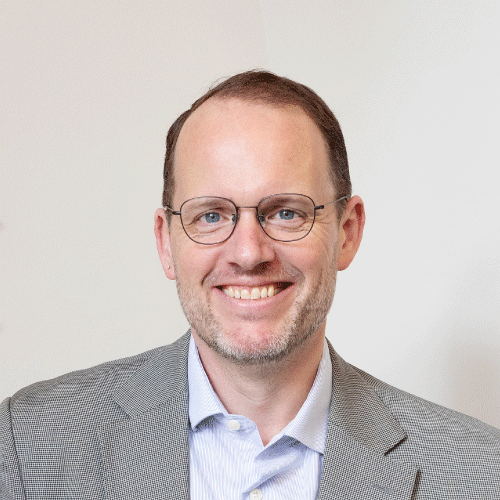From Professor Peter Sherlock. Vice-Chancellor, University of Divinity
Good morning. My name is Peter Sherlock and I am the Vice-Chancellor of the University of Divinity. It is my honour to welcome you on behalf of the University to the Health and Integrity in Church and Ministry conference 2018. I thank all who have contributed to this conference, especially the Catholic religious orders who initiated it.
The University of Divinity was founded here in Melbourne in 1910 by a group of church leaders to provide Australian theology degrees for Australian clergy and laity. Since we gained University status in 2012, our vision has broadened, as we seek to address the issues of the contemporary world through critical engagement with Christian theological traditions.
One of the most pressing issues we must therefore address as a University is the sexual abuse of children and vulnerable people within our churches. Over the last few years as the Royal Commission conducted its work, the University has been asking itself how we might best respond to its findings, in our own particular areas of responsibility – the education of religious and pastoral leaders, and the application of theological insight to the needs of the world around us.
With the release of the Commission’s report and recommendations in December, it was timely for the University to move as soon as possible to identify how we need to respond, both in our own governance and leadership and in our vision and mission. This conference provides a focussed opportunity for the University to identify both immediate and longer-term actions. One outcome of this conference for the University will be the creation of a new goal in our Strategic Plan commencing immediately, to pursue the dual themes of health and integrity in church and ministry.
I acknowledge with sorrow that the University’s staff, students and graduates include victims and survivors of abuse, perpetrators of abuse, and leaders who failed to act or acted wrongly when abuse occurred. For those times when the University’s members failed to live out the theology we teach, and for those times when the theology we taught led to evil, I am sorry.
At the heart of the events leading up to this conference are two key aspects of Christian theology, suffering and sorrow. This contradiction, this pain is found at the heart of Christianity. Those of us who claim to be Christian worship a God who, in the person of Jesus, suffered intolerably on the cross for us and for our salvation. In contemplating the crucified Christ, we recoil from and are rebuked by the Man of Sorrows, even as we enter into his sorrow and suffering. Repentance and forgiveness, then, are not granted lightly, even as the hope of redemption and joy draw us on.
The path leading to this conference is the Way of the Cross. The path is covered by the broken bodies of victims and survivors; lives abused, humiliated and discarded not only by perpetrators but also by our institutions, by our leaders, by us; we looked the other way, refused to listen, denied the truth, protected evil with evil, and hid from those who would hold us accountable.
For those of us here who are leaders and members of the churches and religious orders, newly held to account by our society especially through the Royal Commission, it is not yet time to seek forgiveness and ask for absolution from our neighbours, or from each other. Our sorrow, our lament, our apologies, are only a beginning. Now we must seek to redress the wrongs we have inflicted, knowing always that in God’s mercy Christ walks ahead and behind, calling us to the way of truth and justice in grace.
This conference on health and integrity in church and ministry is one step towards that redress. Over the next three days we will consider a wide range of topics as we seek to transform churches, religious orders, and faith-based agencies. We do so recognising that many of these topics also speak to the pain and injustice which afflict so many in our society, from the refugees we exclude and imprison offshore, to the plague of family violence, to the casual acceptance of harassment and abuse in our workplaces and universities, to the failure to attend to the voices of Indigenous Australians.
Some of the topics we will consider have become familiar in recent years, from screening and checks for ministry, the training of religious and pastoral workers, to the application and reform of church law – essential tools both to protect children and vulnerable people from harm, and to hold us to account for our words and deeds.
Other topics take us into newer areas, as we seek to create healthy churches and ministries that express integrity, in accordance with the gospel we preach. What needs to change in our ministry, pastoral care, governance and leadership? What, for example, might professional supervision for clergy look like? What are the theological implications – and theological changes – which will flow from beginning to listen to children, and from making ourselves truly accountable?
In my role as Vice-Chancellor, one of the great hopes and frustrations I encounter daily is the duplication of effort across different churches as we each seek to address the same fundamental problems. This is not merely an Australian problem but one replicated around the world. This conference is a unique, unprecedented opportunity to pool our wisdom and expertise across dozens of religious traditions.
The ecumenical breadth of this conference is a vital and necessary aspect, which directly confronts one of the biggest issues identified by the Royal Commission: the tendency of religious groups, even within the same denomination or organisation, to work in isolation from each other, free from external control or accountability, but creating unacceptable gaps in the protection of the vulnerable. Can we instead find better ways, together, setting aside our autonomy and self-preservation in order to create a truly comprehensive approach across as well as within the jurisdictional boundaries of churches and states?
For the University of Divinity, and others engaged in the task of theological education, ministry formation, and theological research, a critical topic is how we can prepare church leaders for a better future. I will be journeying with you throughout the conference, asking this question of myself in particular as the University seeks the best way it can contribute to the tasks ahead.
I conclude by encouraging you to engage critically with one other and with the ideas you will encounter today and tomorrow, and to contribute to Wednesday’s conversation about what comes next for each of us, the organisations we represent, the church and our society.

Emeritus Professor Peter Sherlock was the Foundation Vice-Chancellor of the University of Divinity from 2012-2024. He is a cultural and religious historian of Renaissance and Reformation Europe and an expert on governance and leadership in educational and church settings. A graduate of the University of Melbourne and the University of Oxford, his academic career has included an ARC Postdoctoral Fellowship in History at the University of Melbourne and four years as Dean of the United Faculty of Theology, Melbourne.






1 comment